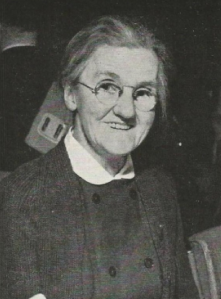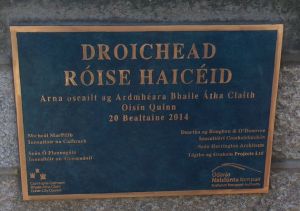
During the 1916 Rising in Ireland, there were many people who invested their time to the cause. Amongst these people, there was a woman named Rosanna Hackett was called Rosie Hackett (Rosanna by birth).
She was born into a Dublin working class family in 1892. Rosie’s father died in 1901, so she, her mother and her sister lived in a tenement building on Bolton Street. After her mother remarried, the family moved to a cottage on Abbey Street.
From a young age, Rosie was involved in activism for women and working class rights. Her experience of working life as a teenager in Jacob’s biscuit factory and its bad condition inspired her and many other women to protest against their treatment. This was proved successful when they received better pay. After that, Rosie co-founded the Irish Women Workers Union (IWWU) with Delia Larkin, wife of James Larkin the renowned Union leader and working class activist.
Prior to Rosie’s work in the Rising, she played an important role in The Lockout (a union wide strike in Dublin) which took place between in 1913 and 1914. She and other women from the IWWU set up soup kitchens at Liberty Hall as a way of reducing poverty in Dublin. Food parcels were sent to assist the needy locals. Because of her involvement in The Lockout, Rosie lost her job.
Soon after this, she became involved with the Irish Citizen Army. Her role during the 1916 Rising was manifold, for instance she was involvement in printing the original 1916 Proclamation and it was her who handed it to James Connolly when the ink was still wet. This caused great controversy as many of the men were unhappy with the fact that a woman was even present. Her involvement resulted with her occupying the Royal College of Surgeons on Stephen’s Green with Michael Mallon and Constance Markievicz. Like Markievicz and Mallon she was captured towards the end of the rebellion and spent 10 days in Kilmainham Jail.
But this didn’t deter her; even after her sentence she re-founded the IWWU, with the help of Louie Bennett and Helen Chenevix. She stayed very focused on the rights of working class women in particular. After 60 years of dedicating her life to helping others, she received a gold medal from x. She died in 1976, at the age of 84.
However Rosie Hackett wasn’t forgotten and in 2014, her legacy was remembered when a bridge over the Liffey River was built and named after her.

